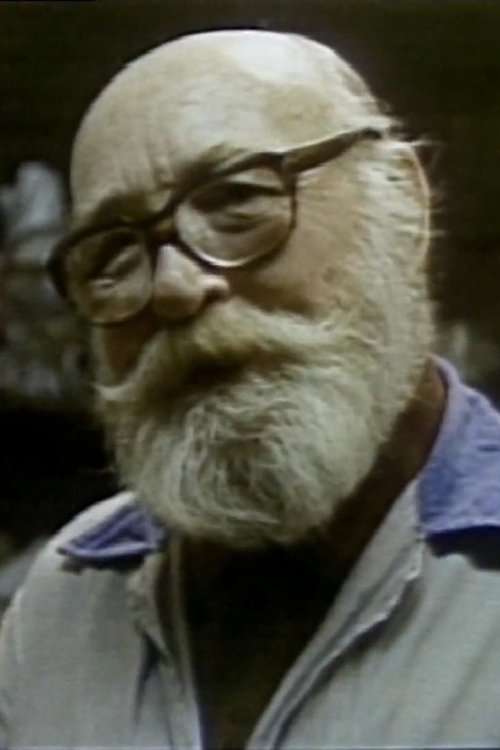
|
Os Condenados (1974)
Character: N/A
In São Paulo, during the 1920s, a woman who is loved by a telegraphist and seduced by a slacker ends up in prostitution.
|
|

|
Joanna Francesa (1973)
Character: N/A
Joana is a sophisticated, beautiful woman, so she has a choice of lovers, and destinies. She will let down Pierre, the French consul at São Paulo, and with him the frivolity of tea-parties and comfort. Her wild inner-soul will develop into the wild forest surroundings of a landlord's farmhouse. To the extent she will defend her land like a 19th century owner - of lands and men alike.
|
|

|
Feminino Plural (1976)
Character: N/A
"Seven women on motorcycles, through Via Dutra, go to the Baixada Fluminense, a microcosm of Brazil. Diving into the memory and questioning the behavior imposed on women, they seek to rescue the strength of the feminine. The new woman, born in the Brazilian land, incorporates the Amazons and Santa Guerreira. At his side, the new man, more loose and creative. Closing the cycle, the initial road is resumed. " (HBH / QC)
|
|

|
Fome de Amor (1968)
Character: N/A
An extended research tour of US university film programs introduced dos Santos to the American avant-garde filmmakers, among them Jonas Mekas and Stan Brakhage, who would directly inspire his formally radical adaptation of an allegorical short story about adultery and colonialism by Guilherme de Figueiredo. Filmed in both Manhattan and Brazil and set against the background of the Vietnam War and its protests, Hunger for Love uses a rigorously abstract soundtrack and narrative structure to evoke the acute paranoia of the period building up to the December 1968 military coup that tipped Brazil perilously close to a conservative dictatorship. With its harsh critique of the decadent tendencies of the Sixties counterculture, Hunger for Love offers a key expression of the self-consciously “ideological” phase of Cinema Novo. -Harvard Film Archive
|
|

|
O Doce Esporte do Sexo (1971)
Character: N/A
Erotic comedy in five segments, starring the same actor, Chico Anysio: O Torneio (The Tournament), A Boca (The Mouth), O Filminho (The Short Film), A Suspeita (The Suspicion) and O Apartamento (The Apartment).
|
|

|
Quem é Beta? (1972)
Character: N/A
The critical success in France of How Tasty Was My Little Frenchman made possible dos Santos’ delirious science-fiction vision of free love in a post-apocalyptic wilderness besieged by flesh hungry zombies contaminated by an unnamed nuclear attack. Who is Beta? follows two statuesque survivors drawn irresistibly together only to be entranced by the arrival and sudden disappearance of a third, the bewitching raven haired Beta. With its cartoon-like depiction of extreme violence and desire, Who is Beta? offers a heady Pop-infused companion to Hunger for Love. Yet beneath its giddy play of surfaces, dos Santos' underappreciated film gradually reveals a darkly ambiguous metaphoric dimension. -Harvard Film Archive
|
|

|
Álbum de Família (1981)
Character: Avô
Follows the decadence of an incestuous oligarch family in a rural Brazilian household through the years during the early 20th century.
|
|

|
Mãos Vazias (1971)
Character: N/A
In a small town in the State of Minas Gerais, Brazil, a woman rebels against local morality after her child dies, with tragic results.
|
|

|
Dona Flor e Seus Dois Maridos (1976)
Character: Pelanchi
After the death of her handsome but good-for-nothing husband Vadinho, Flor, a widow, marries Dr. Teodoro, a respectable gentleman. Hilarity ensues when Vadinho's spirit returns into her life.
|
|

|
O Trapalhão na Arca de Noé (1983)
Character: Noé
Duda is a zoo cleaner. He and his friend Kiko and Zeca are actively engaged in an animal protection group. For this reason, they are summoned by mystic Noé to fight animal hunters in the Pantanal region, in Brazil, who are after animal skins and furs, and are led by the mean Morel. They accept the mission and, on their way, meet archaeologist Marcos and photographer Carla, who are in search of a lost pyramid built by the Phoenician. Together, they try to beat the hunters.
|
|

|
Como Era Gostoso o Meu Francês (1971)
Character: Mercador francês
Brazil, 1594. The Tupinambás natives are friends of the French and their enemies are the Tupiniquins, friends of the Portuguese. A Frenchman is captured by the Tupinambás, and in spite of his trial to convince them that he is French, they believe he is Portuguese. The Frenchman becomes their slave, and maritally lives with Seboipepe.
|
|

|
Anchieta, José do Brasil (1977)
Character: Pero da Cruz
Life and death of the jesuit who fought for the peaceful relationship between colonists and the indigenous peoples of Brazil.
|
|

|
Inocência (1983)
Character: Padre
In the 19th century, a country girl is seduced by a young doctor who's staying at her house for a few days, caring for her, and tries to hide the forbidden romance from her father, who disapproves of the relationship.
|
|

|
Se Segura, Malandro! (1978)
Character: Old man in wheelchair
Paulo Otávio is the host of a pirate radio station on the slums of Rio de Janeiro. He struggles to mantain the station working, since the only help he's got comes from news reporter Calói. Their story goes beyond as the city starts to face a crime wave.
|
|

|
Brasil Ano 2000 (1969)
Character: N/A
Year 2000. Brazil was partially devastated by the Third World War. An immigrant family arrives in a small town, which they call "I Forgot." The trio is recruited by an indigenist to pretend to be indigenous during the visit of a general. In the dilemma of integrating into the system or preserving individual freedom, the family moves toward disintegration as the city prepares to launch a space rocket.
|
|

|
Azyllo Muito Louco (1970)
Character: Juiz de paz
Father Simão Bacamarte arrives in the small town of Serafim to investigate a certain phenomenon of madness.
|
|
















